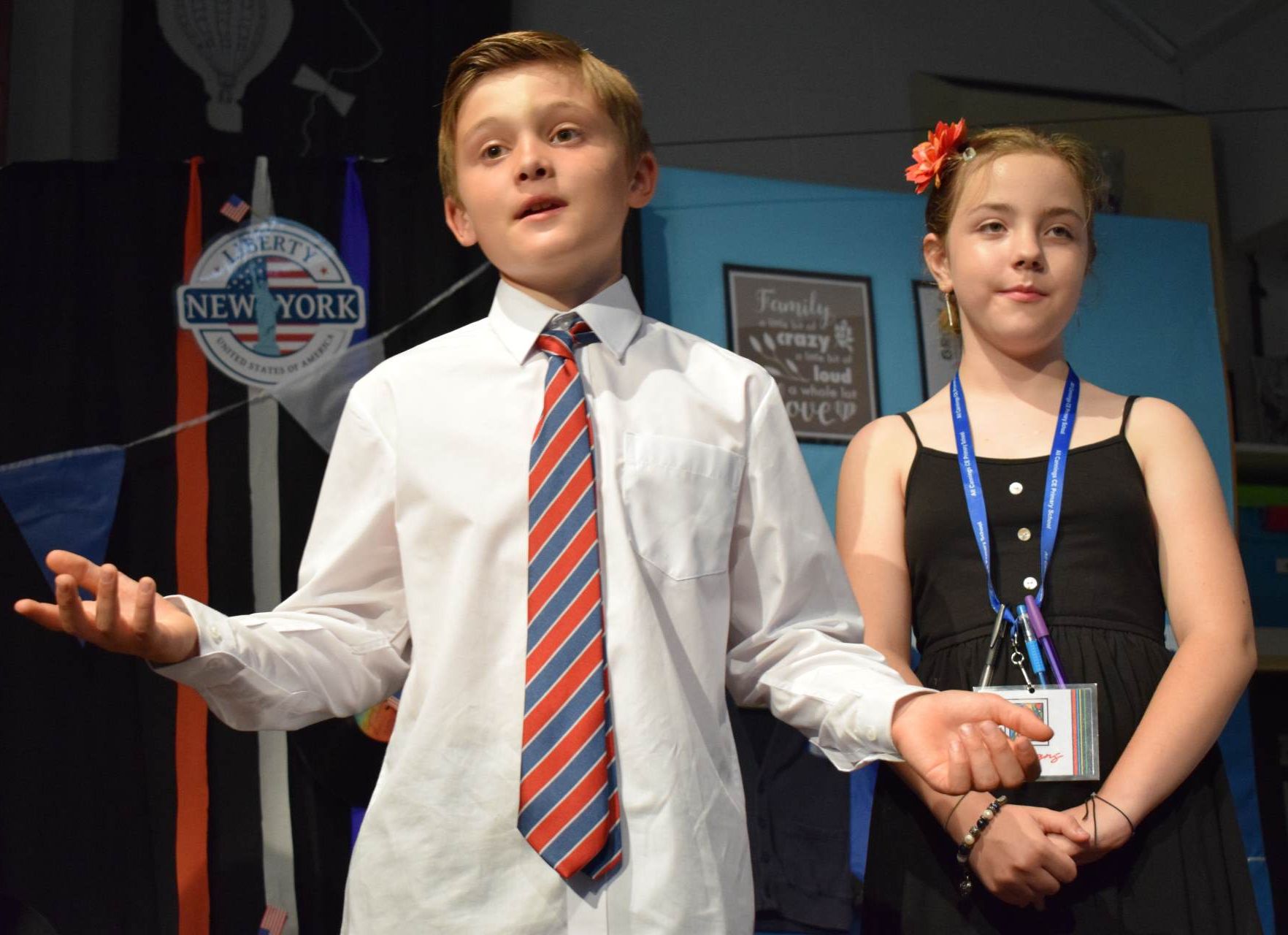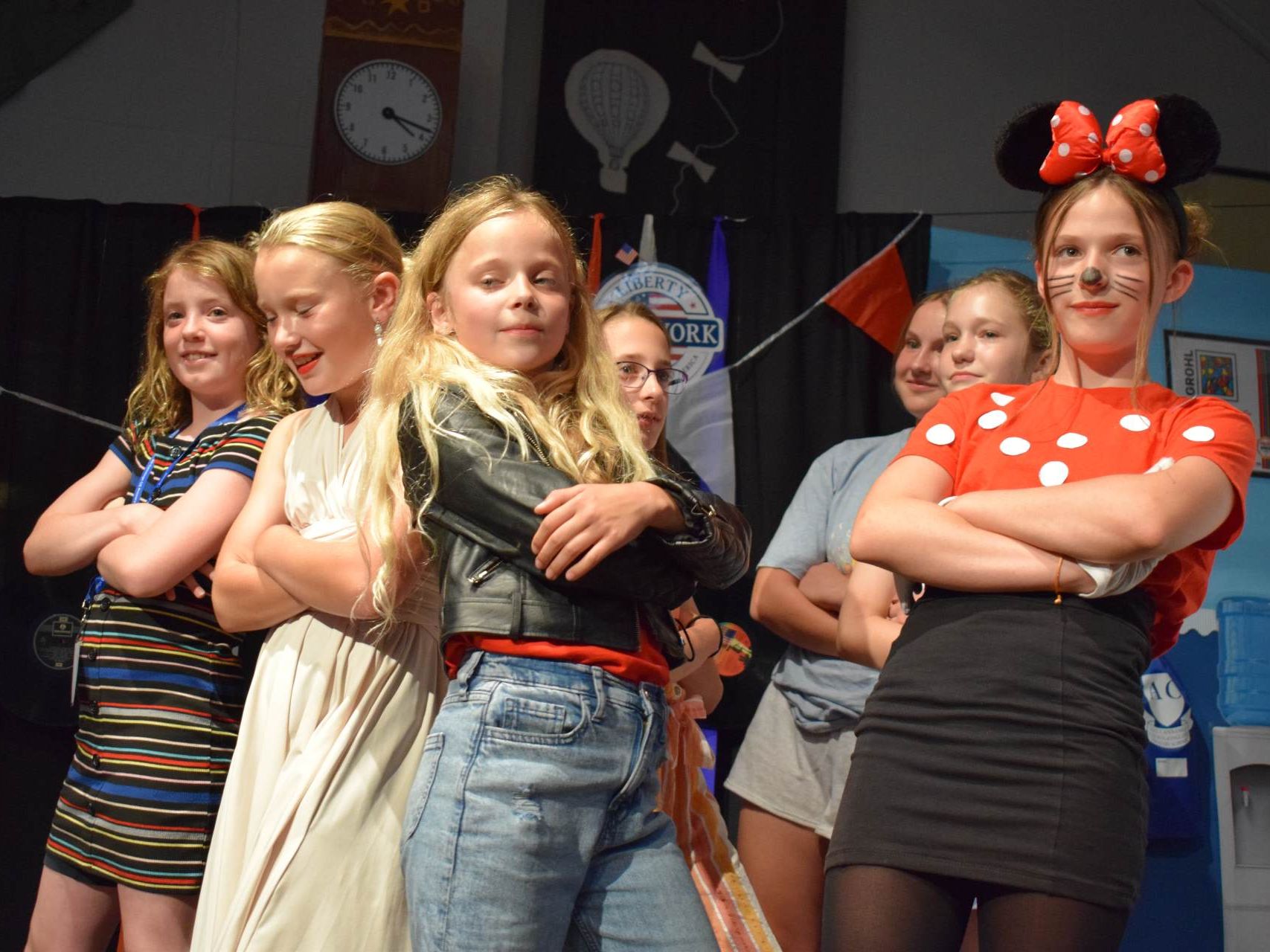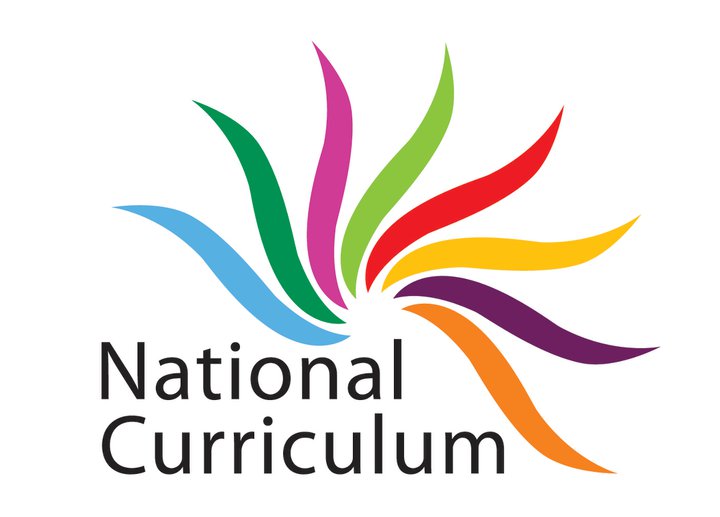English - Speaking and listening
Speaking and Listening - Statement of Curriculum Intent
At All Cannings School, we believe that the mastery of speaking and listening skills is vital, underpinning our pupils’ development as readers and writers and enabling them to become confident and competent communicators. Our intent is to introduce and develop these skills systematically, whilst giving pupils the opportunity to practise and apply them in a wide range of contexts in a supportive, encouraging environment.
We place great emphasis on the preparation/organisation of speech; vocabulary extension; projection and effective listening.

Implementation:
Articulation is one of our ‘Golden Threads’ and opportunities to both develop and practise speaking and listening skills are embedded across the All Cannings Curriculum. Staff, drawing attention to speaking and listening skills when appropriate. We provide a language-rich environment, where adults talk with children throughout the day, modelling our high expectations at all times; we believe that the more children take part in conversations, the more they will understand when they read and the more vocabulary and ideas they will have to draw on when they write.
From EYFS, we give children regular opportunities to speak and listen in pairs, small groups and to a larger audience. Pupils are taught the importance of projection and clarity and to understand how to listen effectively (“It’s hard to listen when you’re talking or thinking of a response” Catherine Pulsifer) and age appropriate expectations are shared with all staff and applied consistently, irrespective of context. Pupils are given opportunities to both informally and formally plan their contributions to discussions and are expected to speak in full sentences whenever appropriate.
We implement the ‘Word Aware’ approach to formally introduce and explore new vocabulary and all pupils are encouraged to be ambitious with vocabulary choices, building up class and personal word banks and using a thesaurus effectively in KS2. We teach our pupils to be precise in their verbal communication, making them aware of how ambiguity can lead to misunderstanding.
Pupils are given time to orally rehearse before writing, with EYFS, KS1 and LKS2 incorporating some of the elements of Pie Corbett’s ‘Talk for Writing’ approach into their learning.
During our weekly celebration worship – for which there is an open invitation to families and friends – participating pupils are given time to prepare and rehearse their contribution, with the expectation that all will speak clearly and with expression. We also run an annual poetry recital competition, which all pupils are encouraged to enter and from Year 1 upwards, every child is expected to take on at least a small speaking role in our annual Nativity. Every other year, we have a KS2 production, in which as many pupils as possible are given lines to deliver.

Impact:
Our pupils are confident in the art of speaking and listening and are able to use discussion to communicate effectively and to further their learning.
Our pupils are able to communicate thoughts, feelings and ideas confidently and successfully and to transfer these effectively from the spoken to the written word.
Our pupils listen carefully and actively, valuing and responding to others’ viewpoints and opinions.
Our pupils are proficient users of Standard English, with awareness and respect for other languages and dialects.




Close